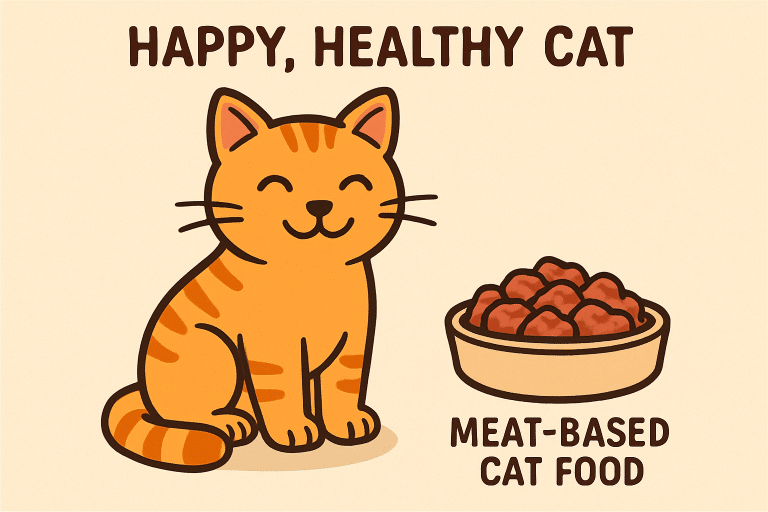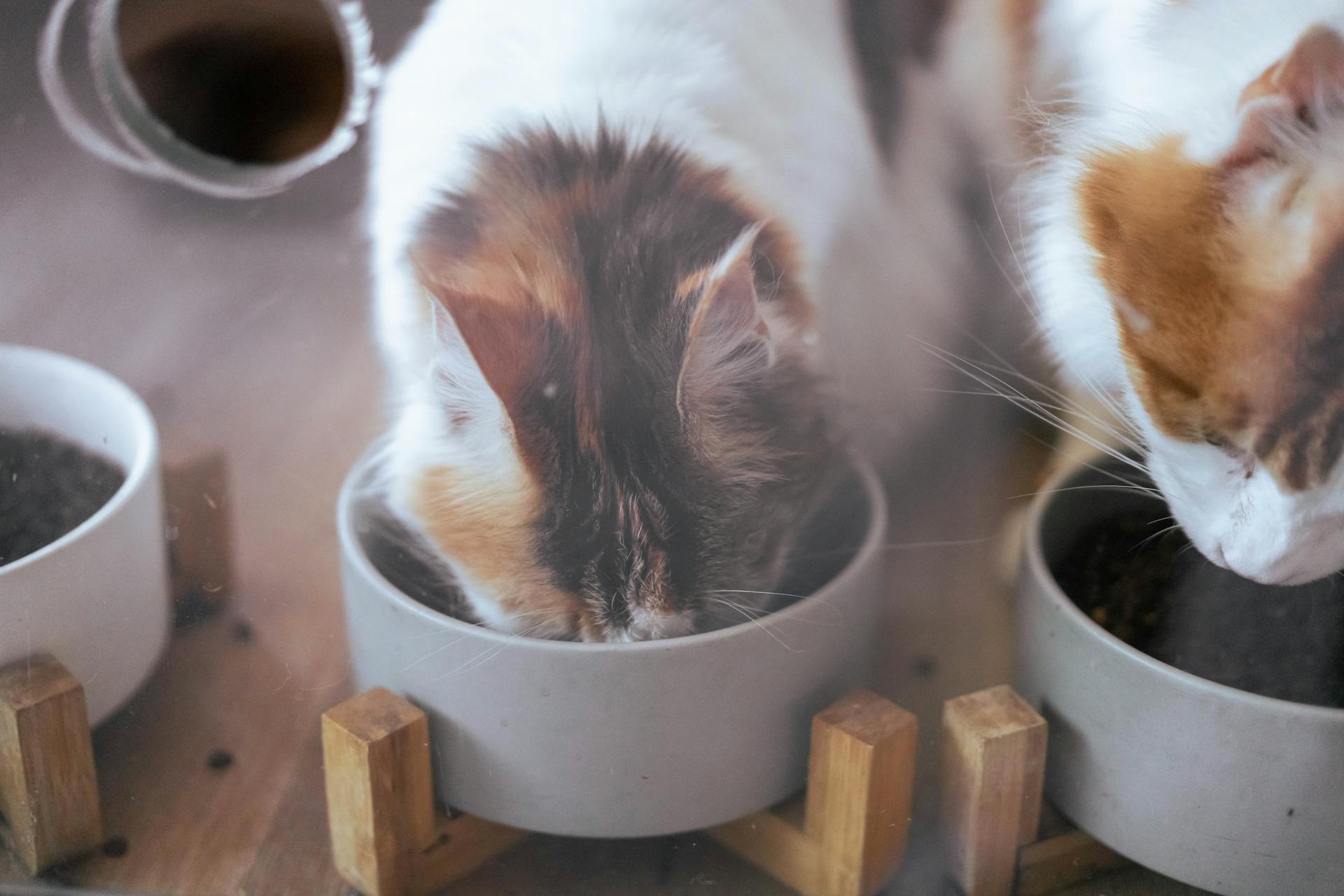Key Takeaways:
- Cats are obligate carnivores, requiring diets rich in animal proteins.
- High-protein diets support muscle maintenance, energy levels, and overall health.
- Essential amino acids, such as taurine and arginine, are vital for feline well-being.
- Protein intake influences weight management and metabolic health in cats.
Table of Contents:
- Understanding Cats as Obligate Carnivores
- The Essential Role of Protein in Feline Diets
- Vital Amino Acids: Taurine and Arginine
- Muscle Maintenance and Energy Levels
- High-Protein Diets and Weight Management
- Digestive Health and Protein Sources
- Age-Related Considerations for Protein Intake
- Conclusion
Understanding Cats as Obligate Carnivores
Felines possess unique biological needs, shaped by their role as obligate carnivores. Unlike humans and dogs, which can thrive on a mix of proteins, fats, and carbohydrates, cats must consume animal-based proteins to meet their nutritional needs. Their bodies are optimized to utilize nutrients from meat, underscoring the importance of a diet that mimics their natural feeding habits. Ensuring adequate animal protein is central to supporting their daily health and longevity.
Because cats depend on animal proteins for essential nutrients, a balanced and well-formulated diet is crucial for their well-being. Many owners consider incorporating a cat dietary supplement to enhance overall nutrition, particularly if their feline is a picky eater or has special needs. Choosing the right foods and supplements can help bridge nutritional gaps for cats at every stage of life.
This distinct physiological makeup means that cats are unable to utilize plant-based proteins as efficiently as animal-derived ones. Plant-based diets can lead to nutrient deficiencies, as many essential compounds—such as specific amino acids and vitamins—are either present in lower amounts or absent altogether in plants. Studies published by organizations such as the ASPCA highlight the risks of feeding cats inappropriate diets, which can lead to significant health issues.
Rather than adapting to varied diets, cats retain their carnivorous traits from their wild ancestors. Their digestive tracts are shorter and more acidic than those of omnivores, further emphasizing the need for nutrient-rich meat sources. Owners must recognize this inherent trait to provide optimal care to their feline companions.
The Essential Role of Protein in Feline Diets
For cats, protein is not just a source of nutrition—it is the primary driver of energy and vital bodily processes. Feline metabolism is highly efficient at breaking down amino acids from animal protein, which facilitates steady blood glucose levels and supports all primary bodily functions.
Unlike many other animals, cats cannot regulate or reduce protein breakdown when intake is low, illustrating why consistent, high-quality dietary protein is necessary.
This metabolic requirement makes cats especially sensitive to low-protein diets. They cannot adjust their protein needs downward, so diets lacking in quality protein may result in muscle loss, decreased immune response, and impaired organ function. Consulting with a veterinarian ensures that your cat’s dietary needs are adequately met, particularly if you are managing a health condition or your cat is of advanced age.

Vital Amino Acids: Taurine and Arginine
Two amino acids—taurine and arginine—are essential for feline health. Taurine supports vision, heart function, and reproductive health, while arginine is vital for the detoxification of ammonia produced during protein metabolism.
Because cats cannot synthesize sufficient amounts of these amino acids, they must receive them through their diet. The consequences of deficiency are severe: taurine deficiency can cause blindness and heart failure, while a shortage of arginine can lead to a rapid build-up of toxins in the blood.
Foods formulated specifically for cats are designed to meet these nutritional demands. However, pet owners should always check labels for guaranteed levels of these critical amino acids and avoid diets that rely heavily on plant ingredients or unconventional protein sources, which may not provide adequate nourishment.
According to the , proper diet formulation is crucial for preventing these deficiencies and safeguarding your cat’s health.
Muscle Maintenance and Energy Levels
Just as protein is a building block for growth and repair in humans, it is equally vital for the feline body. Cats require optimal protein to rebuild tissues, support strong muscles, and maintain a healthy weight. As they grow older or during periods of high activity, dietary protein helps prevent muscle wasting and ensures ongoing vitality.
High-protein diets are particularly beneficial for active cats and seniors. These foods enable efficient muscle repair, enhance agility, and keep cats active well into their golden years. Conversely, diets that fail to meet protein needs may lead to increased fatigue, increased vulnerability to illness, and a decline in daily activity levels.
High-Protein Diets and Weight Management
Chronic overeating and obesity are growing concerns in the feline population, leading to diabetes, joint issues, and a reduced quality of life.
Feeding a high-protein, low-carbohydrate diet can naturally curb overeating by promoting satiety and stabilizing blood sugar levels. Cats that consume adequate protein tend to feel satisfied for longer, reducing the likelihood of overconsumption and unhealthy weight gain.
With a protein-focused regimen, cats receive steady energy throughout the day without the insulin spikes associated with carbohydrate-rich diets.
This metabolic steadiness helps lessen the risk of developing obesity-related problems. Research from reputable sources, such as the ASPCA, supports the role of protein in helping cats maintain a healthy weight and metabolic balance.
Digestive Health and Protein Sources
The source of dietary protein matters as much as the quantity. Animal-based proteins such as poultry, beef, and fish provide the complete spectrum of amino acids cats require. These proteins are more digestible for felines, enabling efficient nutrient absorption and waste elimination. In contrast, plant-based proteins are often incomplete and challenging for cats to utilize fully.
For optimal digestive health and to prevent gastrointestinal upset, owners should choose diets that list meat, organ meat, or fish as the primary ingredients. This ensures that your cat receives all the necessary nutrients in forms their bodies can use effectively. Maintaining digestive wellness is crucial for your cat’s overall health and ability to thrive.
Age-Related Considerations for Protein Intake
A cat’s protein needs evolve over their lifetime. Kittens require significantly higher protein levels to support rapid growth, brain development, and their energy demands. Young adult cats require a maintenance-level protein intake to sustain muscle mass, organ function, and daily activity.
As cats enter their senior years, their ability to process protein may decline; however, they still require high-quality protein to maintain lean body mass and prevent frailty.
Life-stage-appropriate diets, formulated to deliver the right amount and type of protein, are essential for maintaining health at every stage of life. This tailored approach, in conjunction with veterinary guidance, ensures that your cat thrives from kittenhood through their senior years.
Conclusion
High-protein diets are more than a preference for cats—they are a biological necessity. By offering foods rich in animal-derived proteins and backed by veterinary advice, cat owners can promote muscle health, energy, healthy weight, and longevity in their feline companions. Prioritizing high-quality, bioavailable protein in your cat’s diet is a crucial factor in supporting their unique nutritional and metabolic needs throughout their life.







